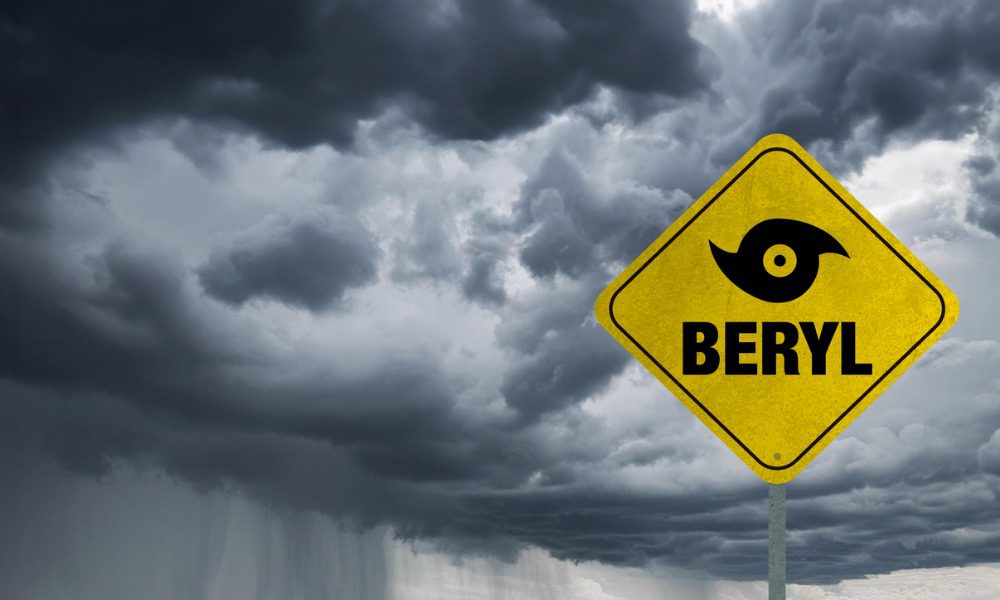Texans urged to brace for Hurricane Beryl

Texans urged to brace for Hurricane Beryl | Insurance Business America
Catastrophe & Flood
Texans urged to brace for Hurricane Beryl
Ex-tropical storm back to hurricane level ahead of landfall
Catastrophe & Flood
By
Terry Gangcuangco
The Insurance Information Institute (Triple-I) is urging Texans to prepare for the potential impact of Beryl, which has gone back to being a hurricane (from tropical storm) before hitting the Texas Gulf Coast today (July 8).
Triple-I advises all residents in Beryl’s path in Texas to review their evacuation plans, including arrangements for pets. It was highlighted that hurricane kits must contain a 14-day supply of non-perishable food and drinking water of one gallon per person per day for all family members and pets, along with a two-week supply of medications.
Residents are also encouraged to write down and carry the contact information of their insurer and insurance professional, while at the same time purchasing emergency supplies like batteries and flashlights and fully charging mobile phones.
To safeguard homes, securing yards by removing outdoor furniture, lawn items, planters, and other objects that could be blown away by high winds is recommended. Finally, filling vehicle gasoline tanks will ensure mobility during and after the weather event, which marks the first US landfall of the 2024 Atlantic hurricane season.
Beryl has already set several records, including the strongest hurricane ever recorded for both June and July and the fastest intensification of any Atlantic basin hurricane before September 1. On July 1, it reached Category 5 status with maximum wind speeds of 165 mph.
Meanwhile, according to Triple-I, different insurance policies cover damage caused by hurricanes and tropical storms.
It said wind damage to property is covered under standard homeowners’, renters’, and business insurance policies. Renters’ insurance protects a renter’s possessions, while the landlord insures the structure.
Flood damage to homes, renters’ possessions, and businesses is typically covered under either a FEMA National Flood Insurance Program policy or a private flood policy, if purchased. Numerous private insurers offer flood insurance in addition to FEMA.
Private-passenger vehicles damaged or destroyed by wind or flooding are covered under the optional comprehensive portion of an auto insurance policy. An estimated 80% of US drivers opt for comprehensive coverage.
What do you think about this story? Share your thoughts in the comments below.
Related Stories
Keep up with the latest news and events
Join our mailing list, it’s free!






